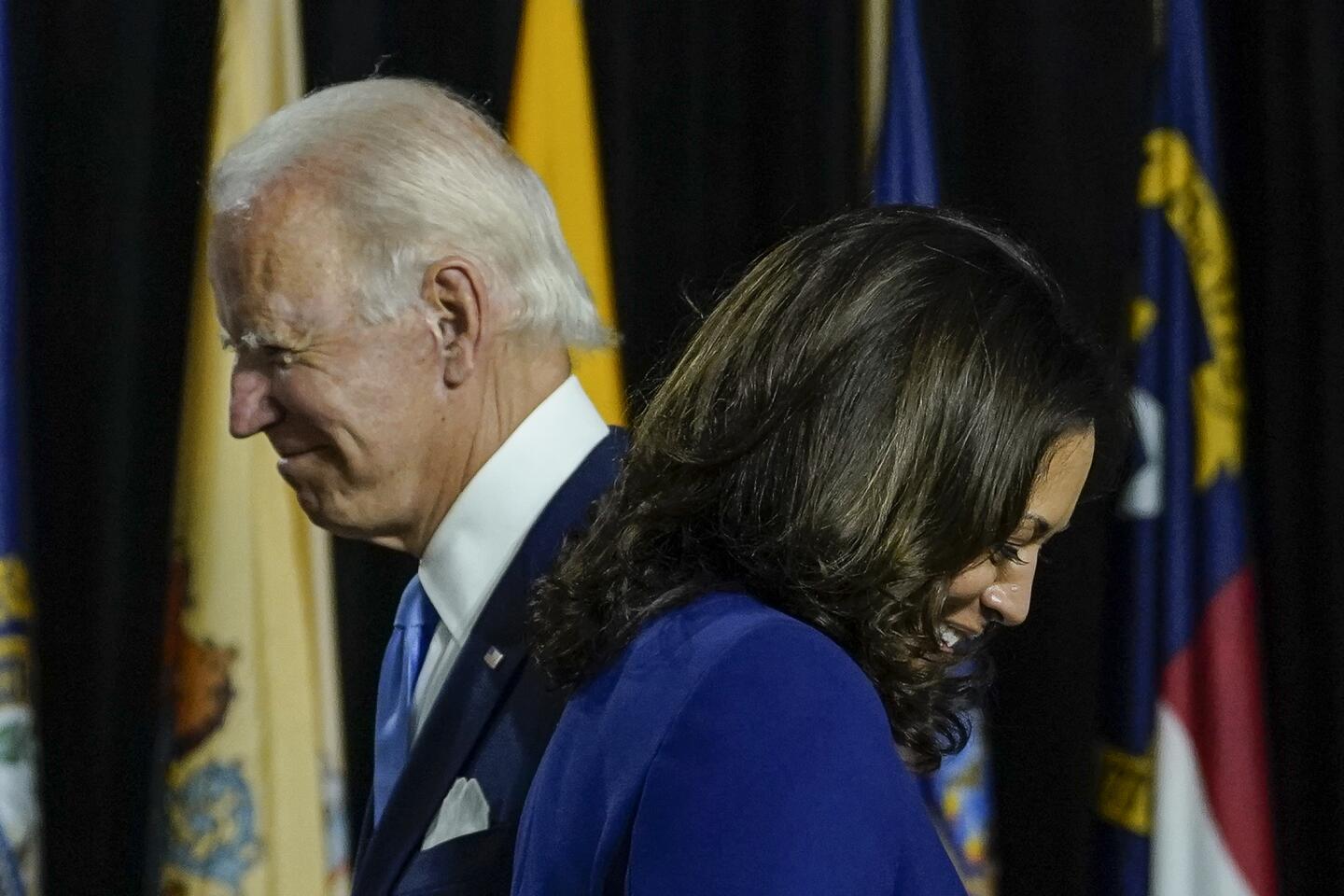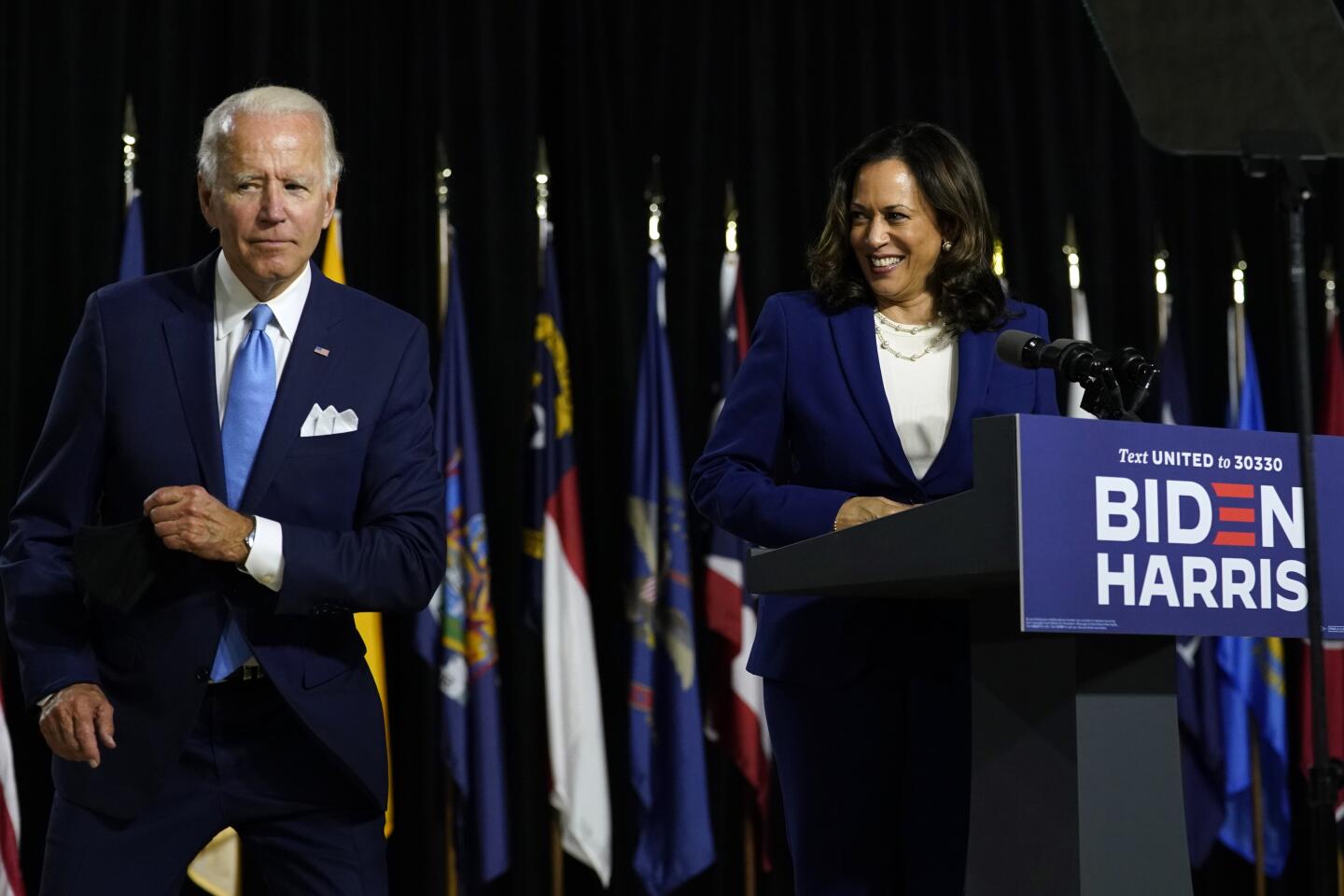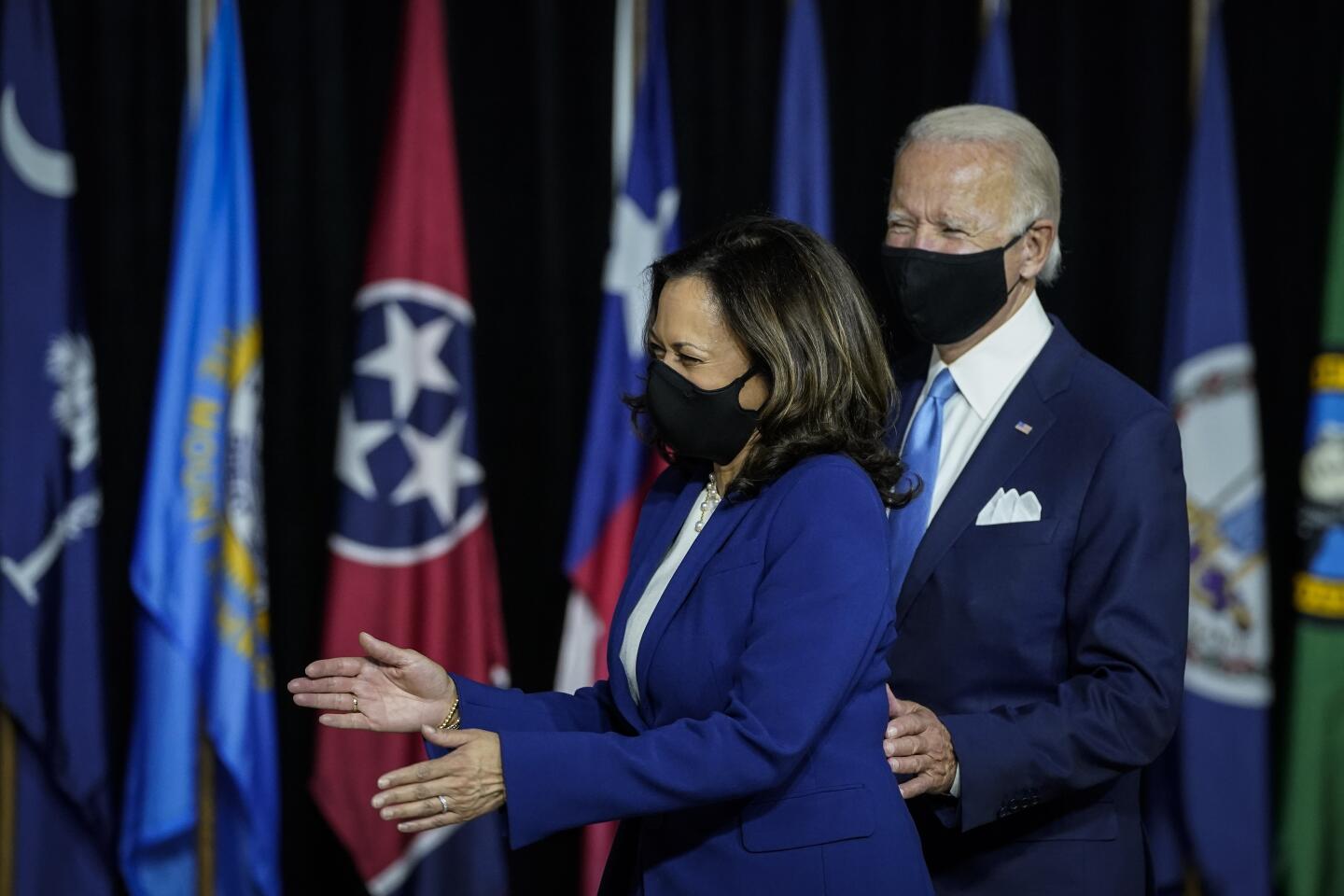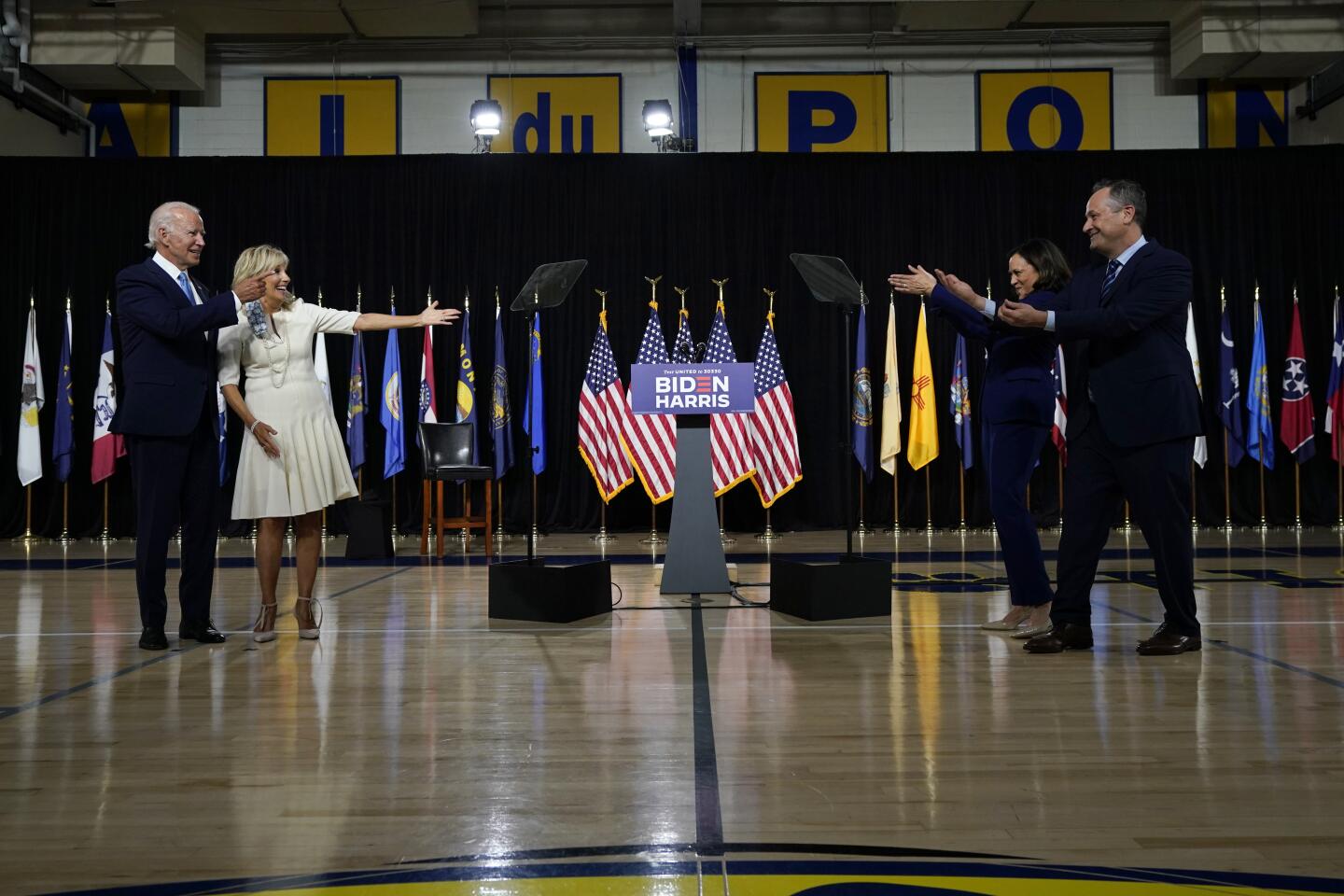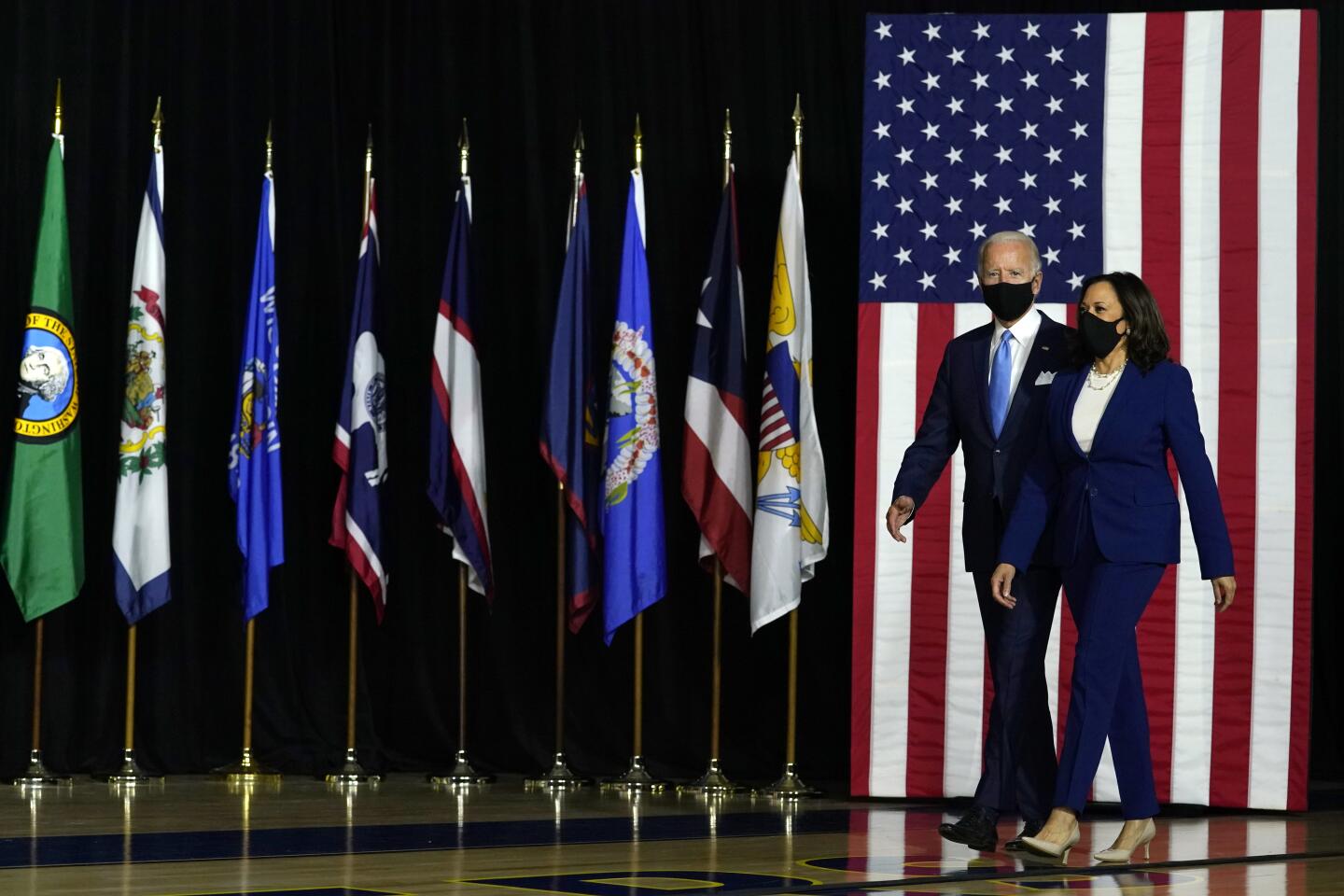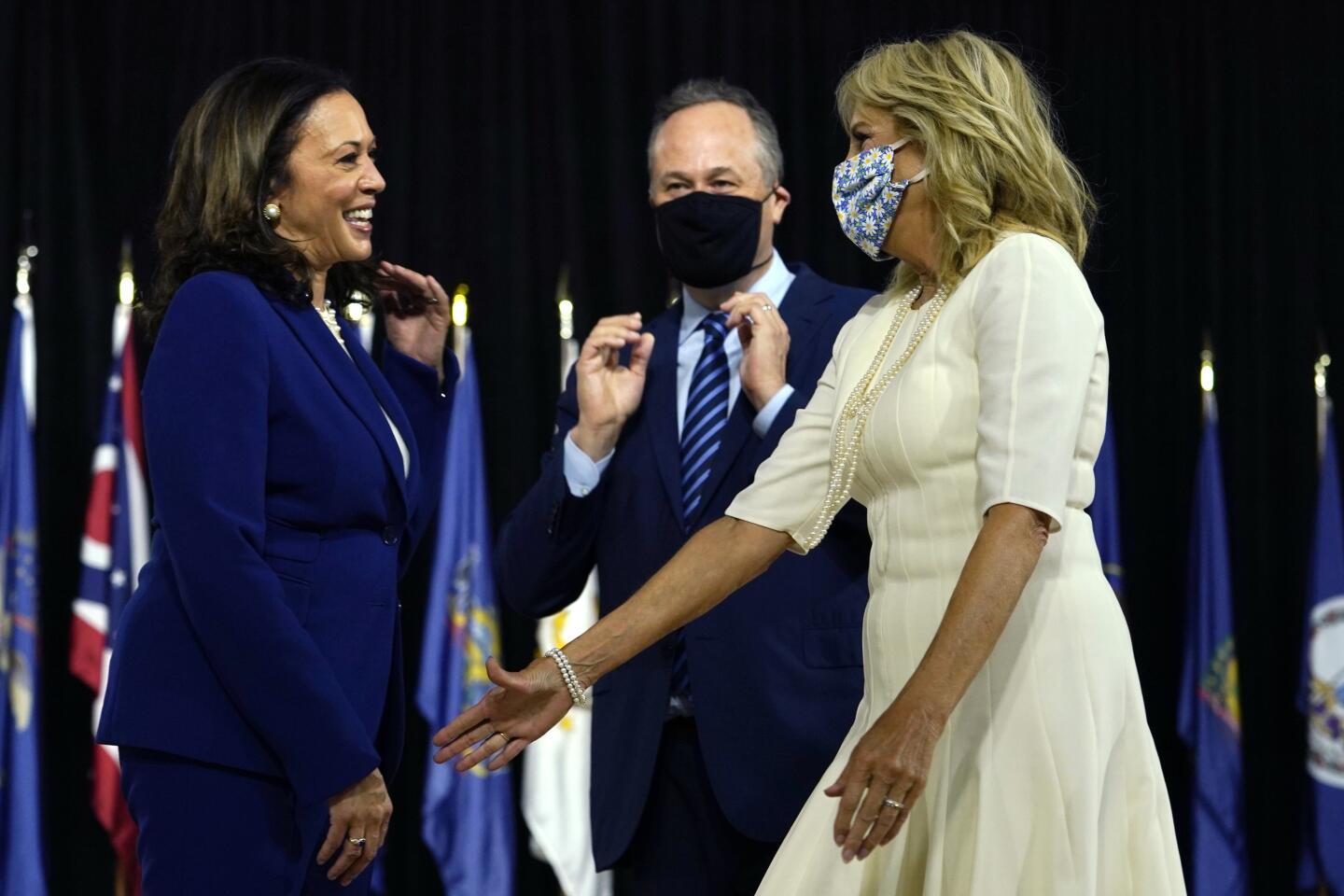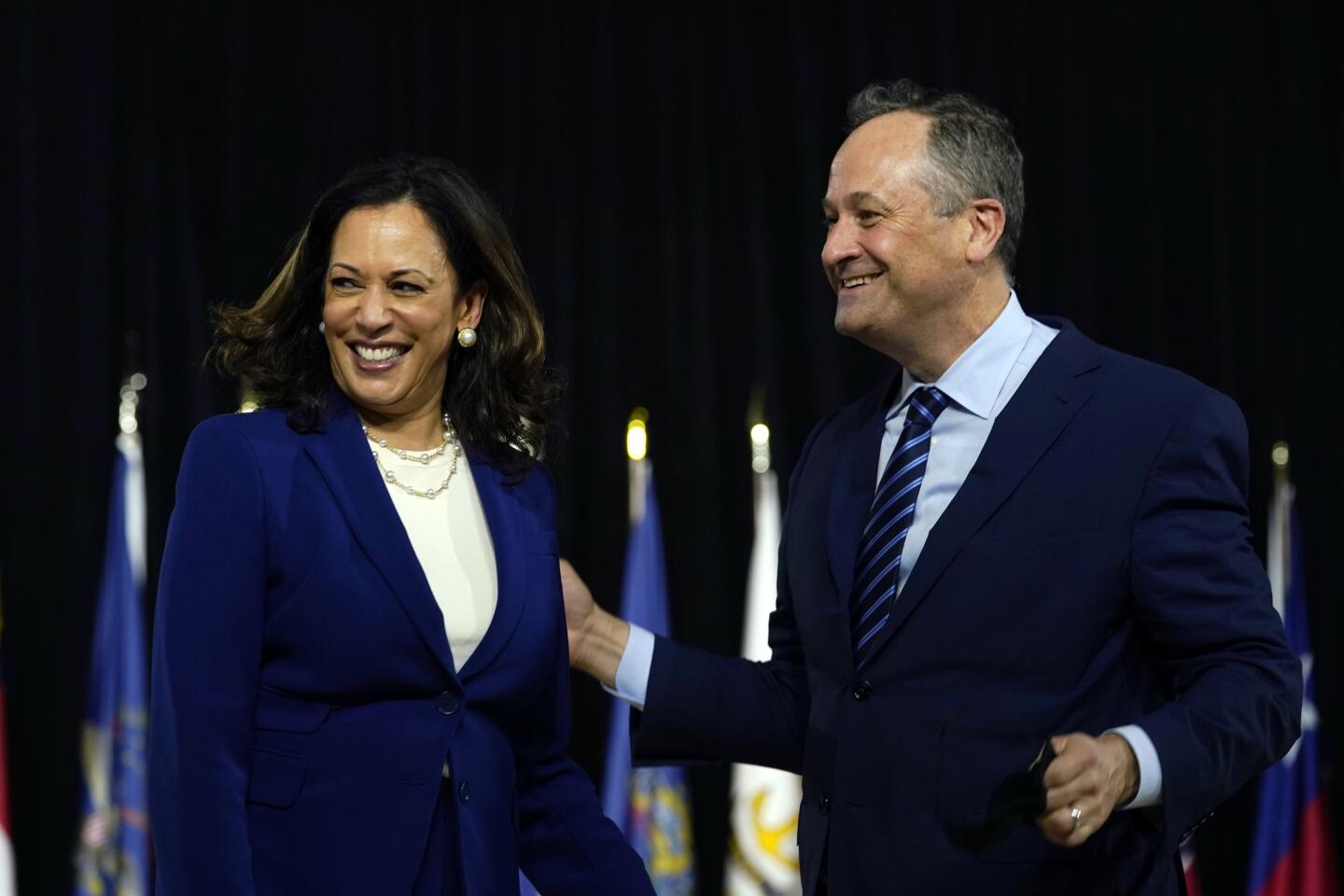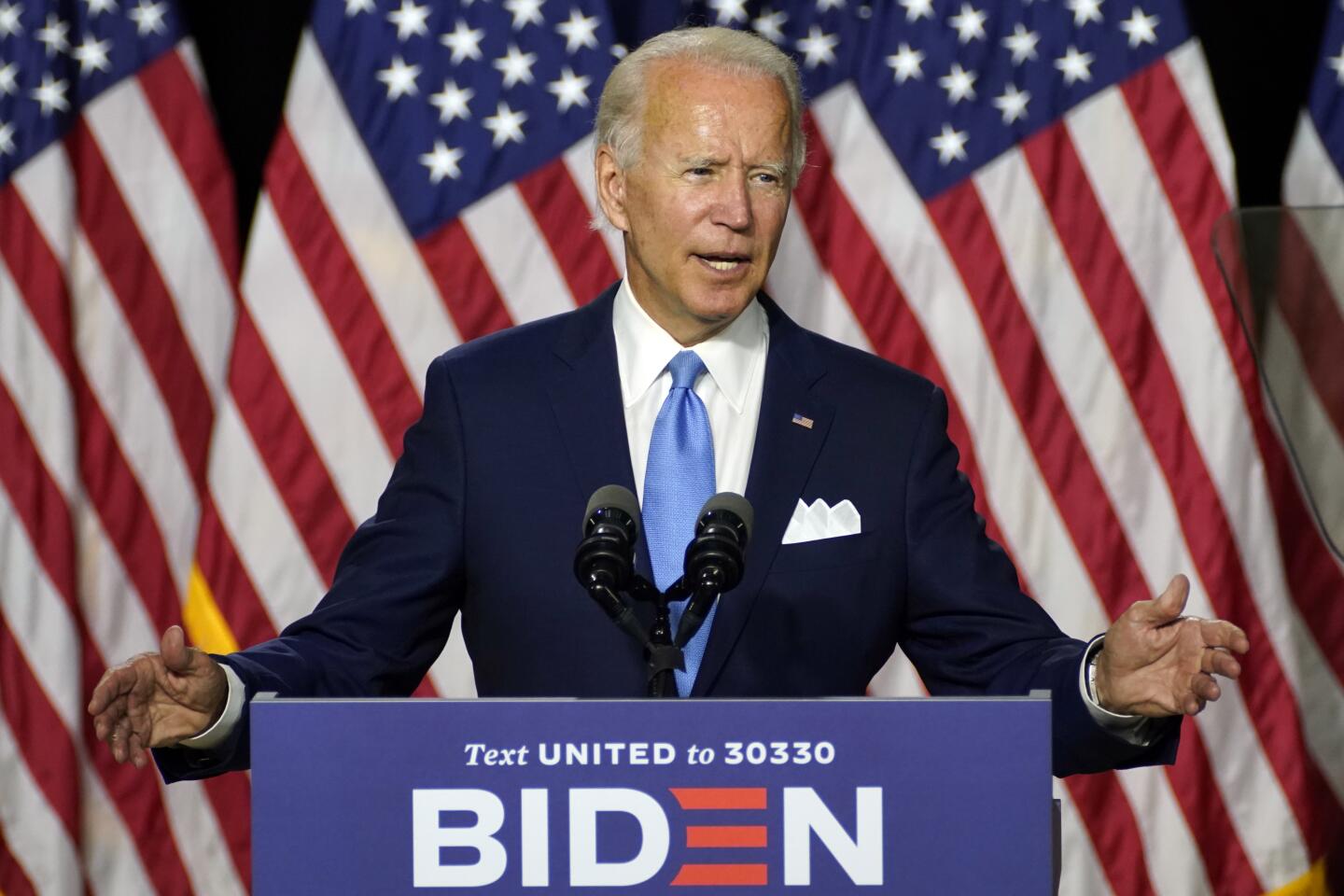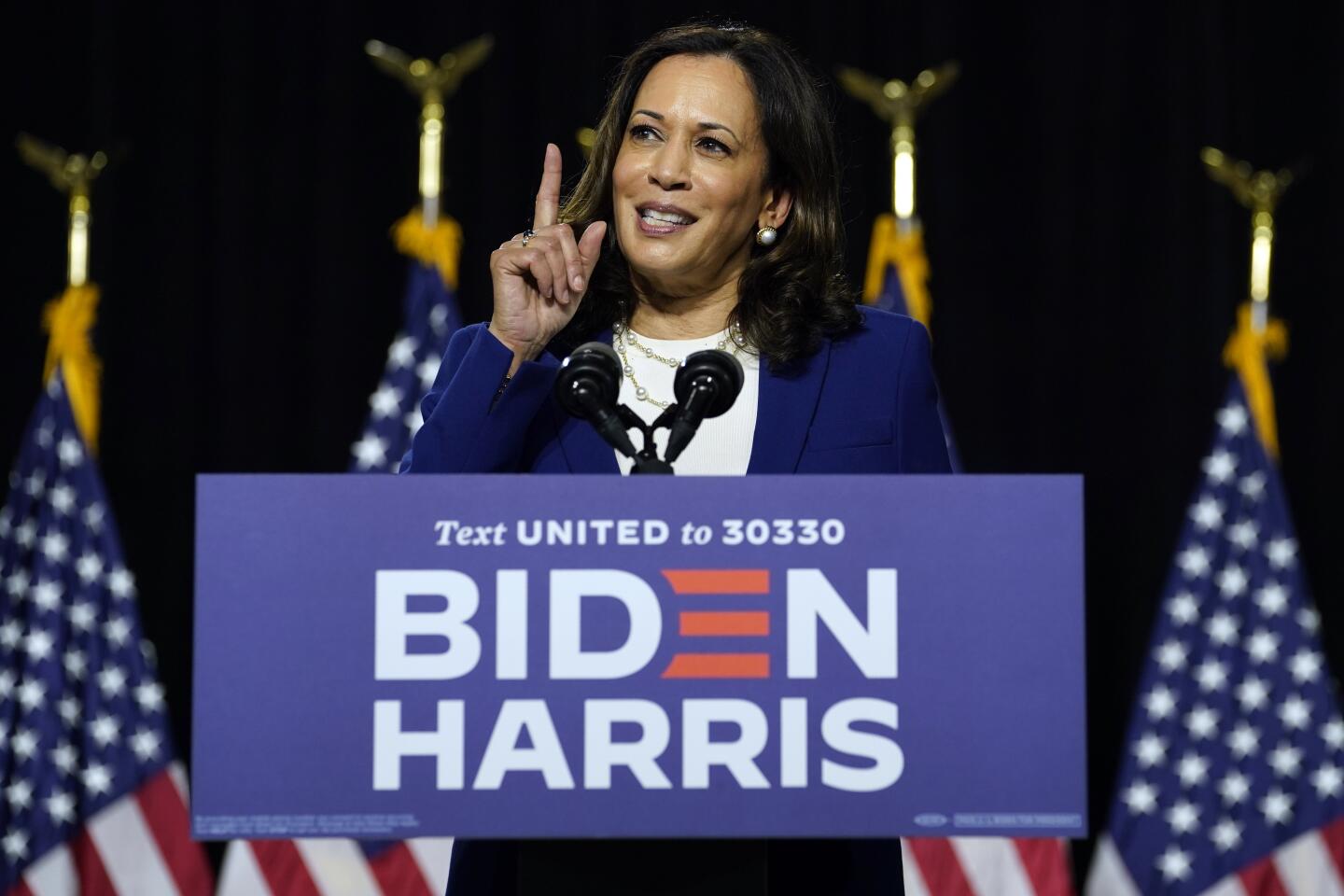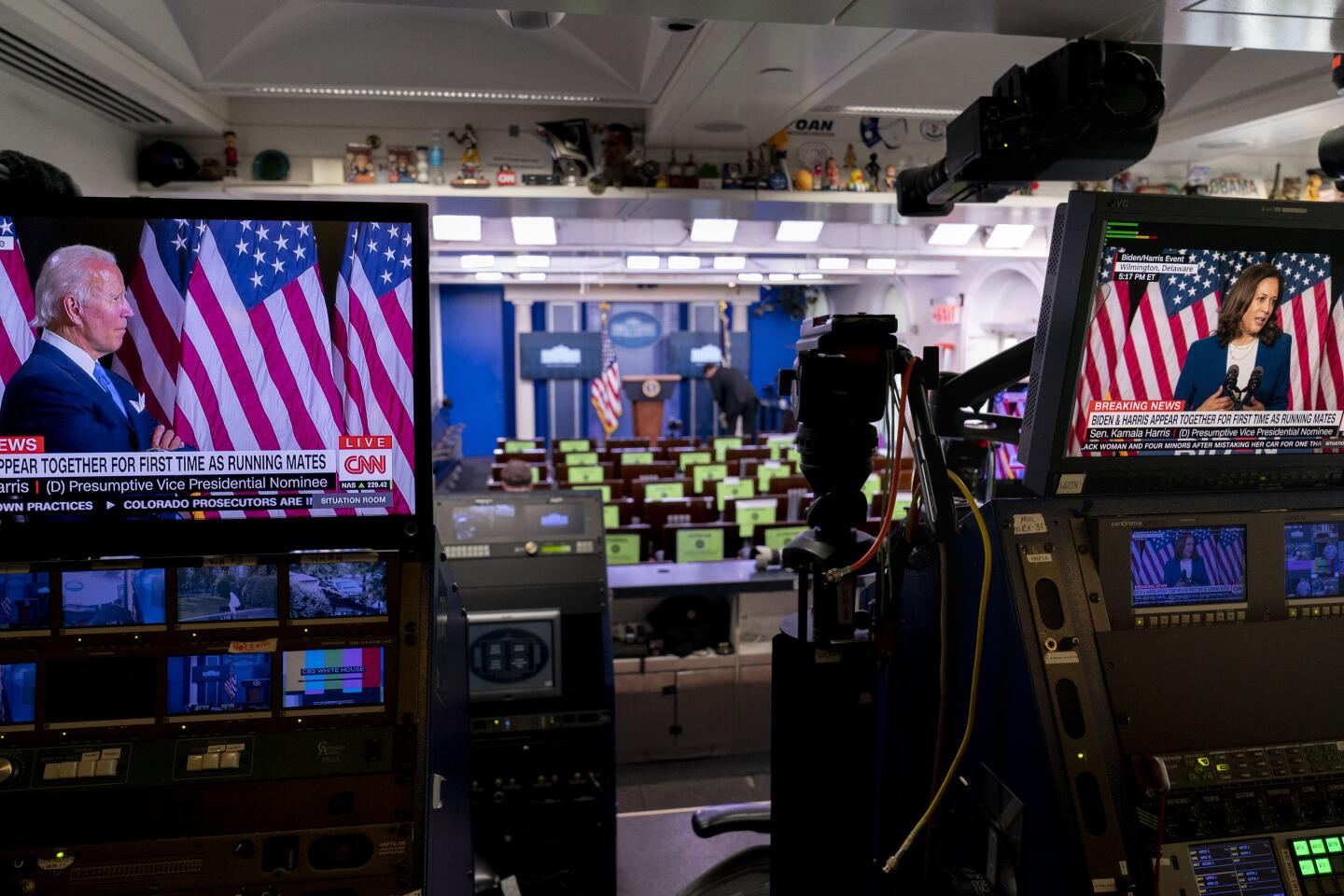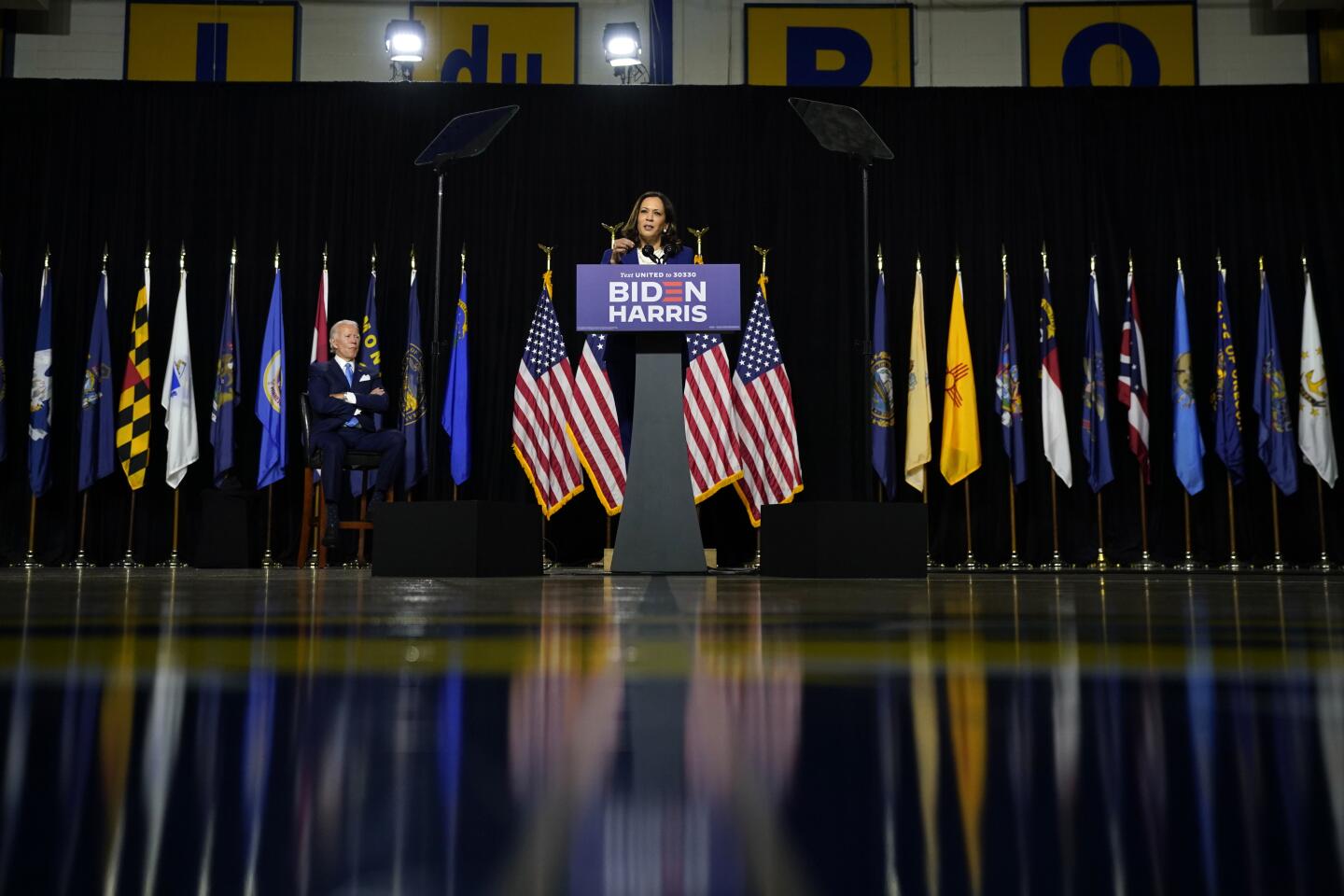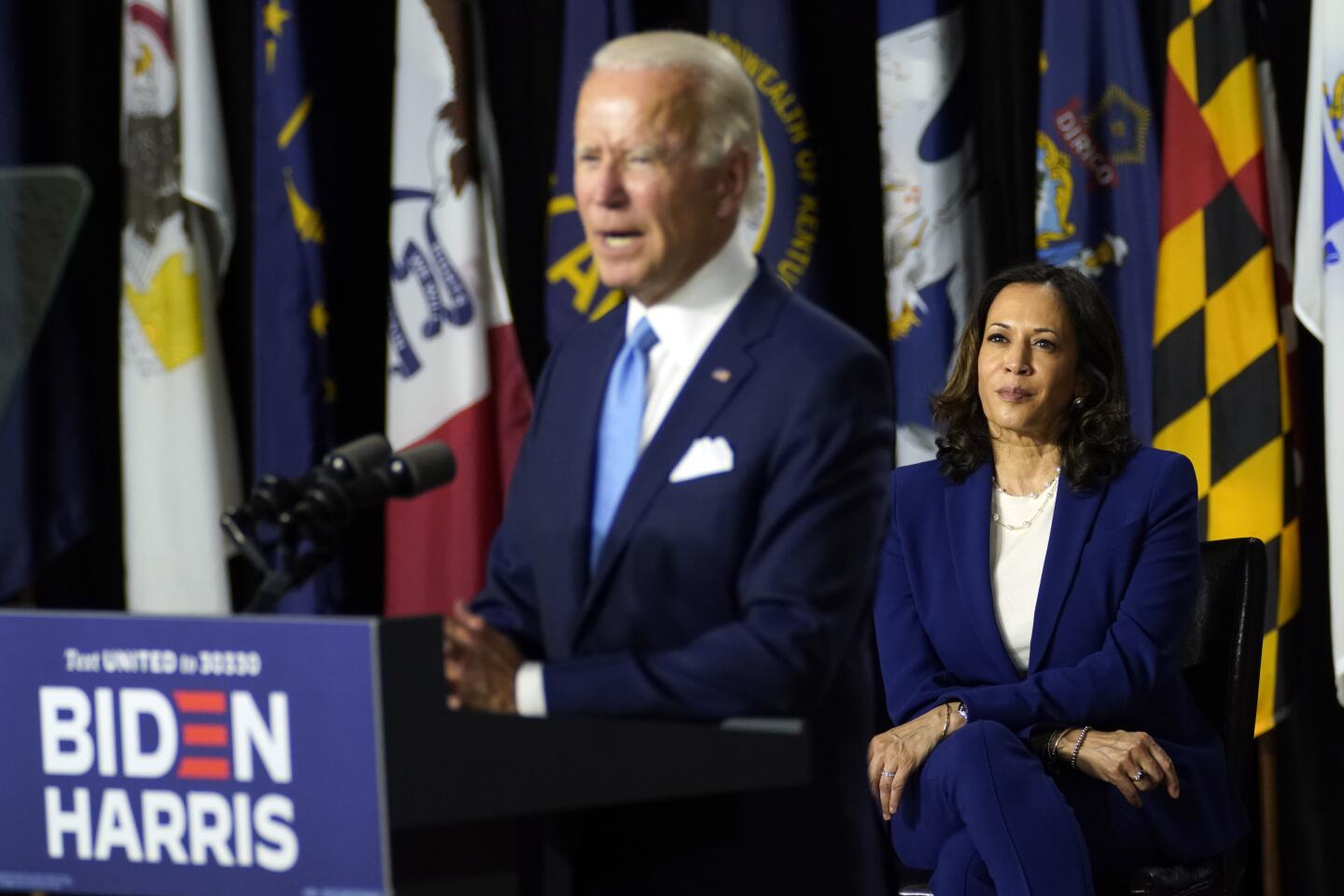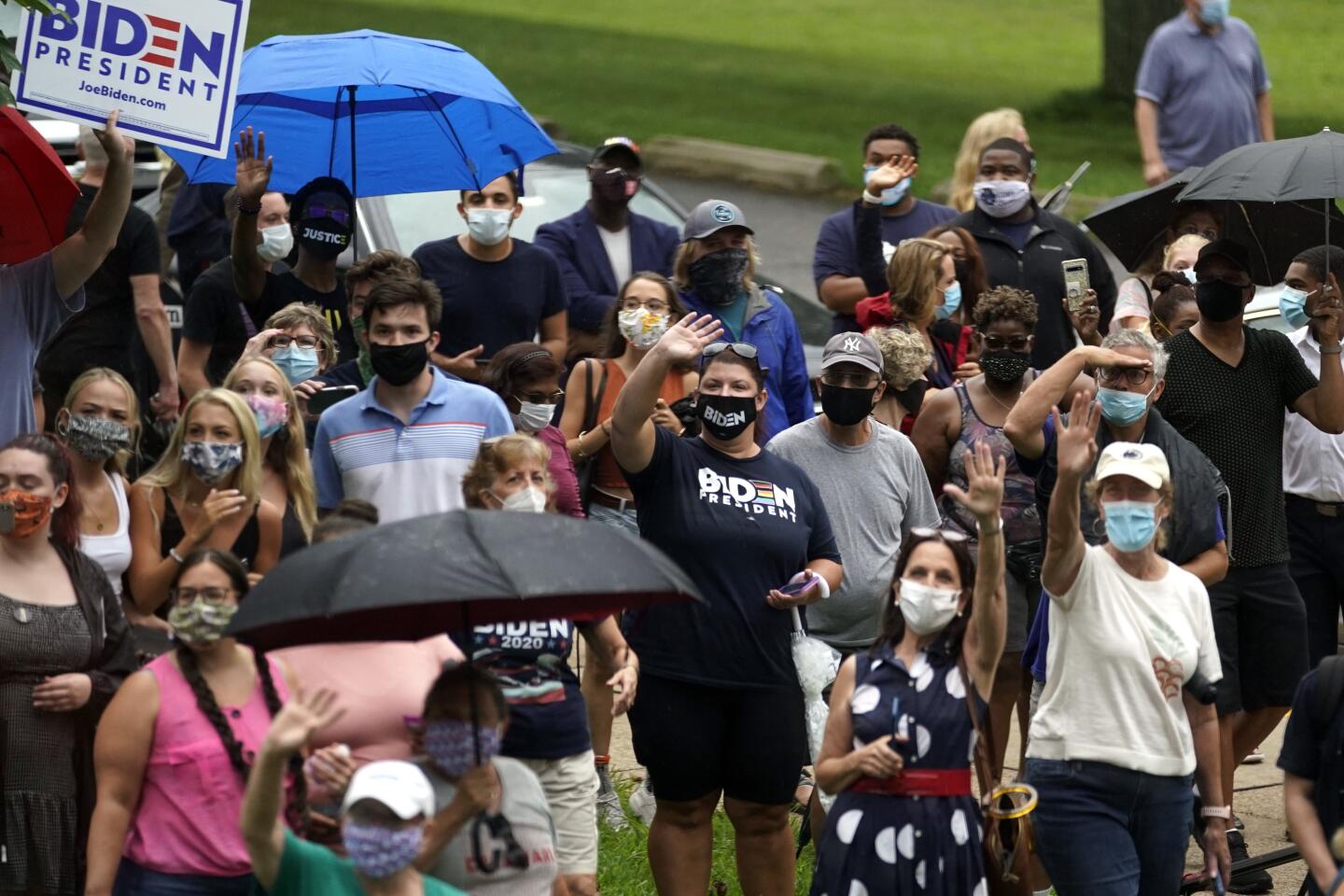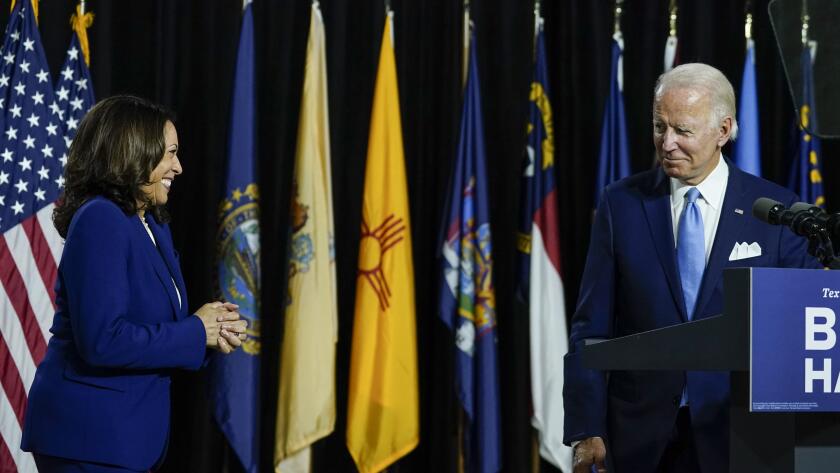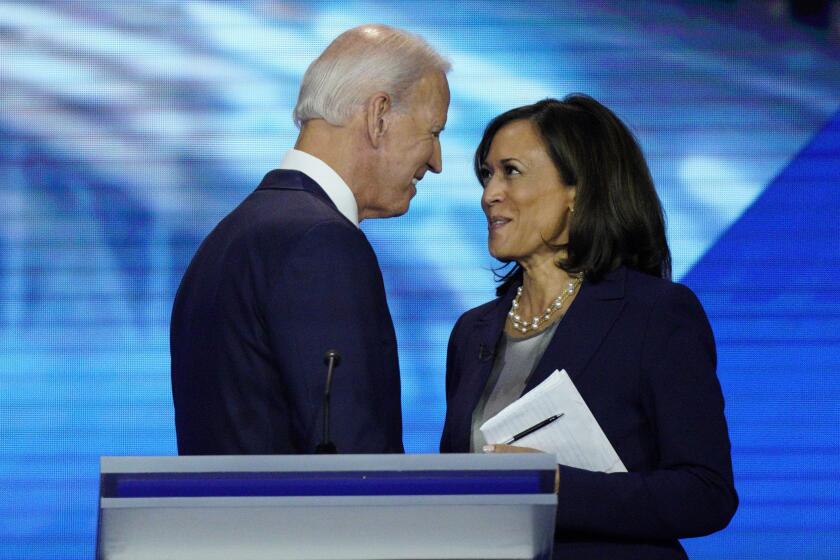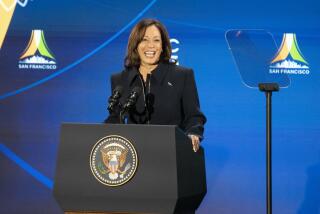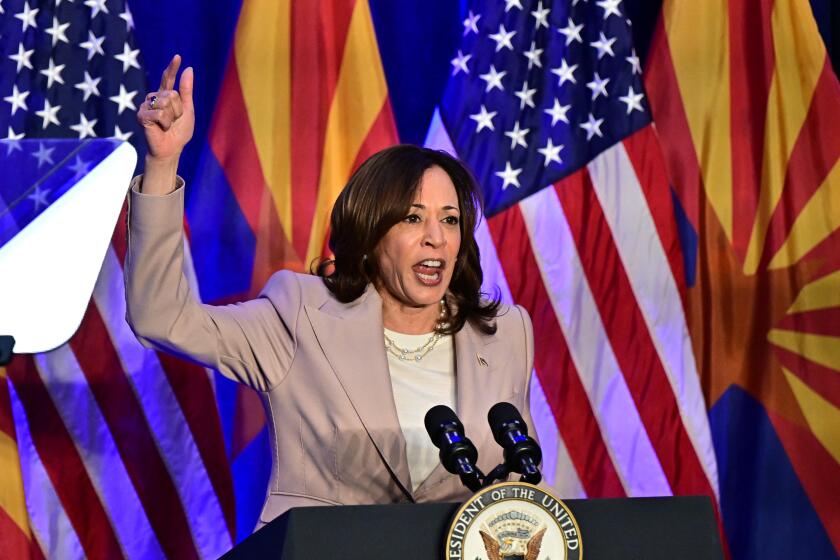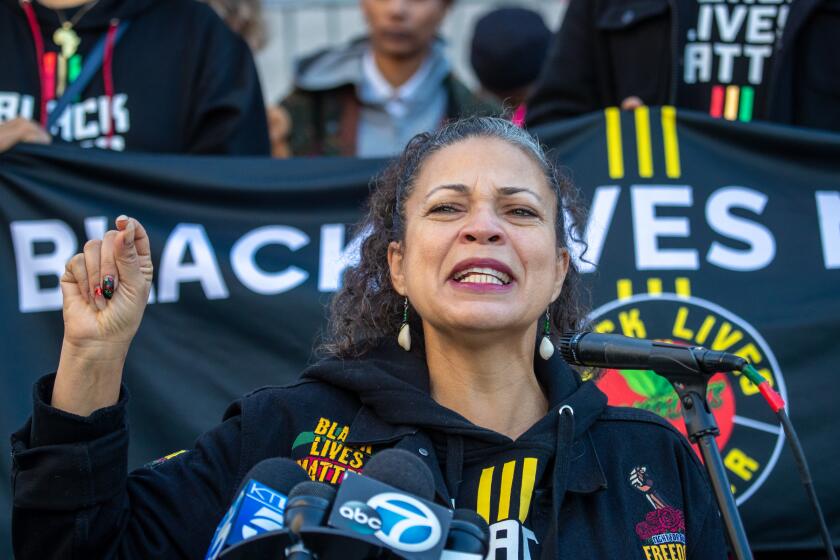Picking Harris, Biden puts centrist stamp on Democrats’ future
In picking Kamala Harris as his running mate, Joe Biden set a marker for how he believes Democrats can win — both in this election and in the future — with a multiracial coalition that can excite voters, but a center-left brand that steers clear of the most far-reaching progressive demands.
Harris, like Biden, but unlike some of the other women who were considered, has rebuffed some demands of the party’s rising progressive wing. That’s a profile that could help Biden appeal to moderate swing voters he needs to win in states like Michigan and Wisconsin.
The two emphasized those themes in their first joint appearance Wednesday in Wilmington, Del., with Biden and Harris each pointing to the historic nature of her presence on the ticket, while ticking through a set of policy proposals, such as expanding the Affordable Care Act and creating new jobs through investments in renewable energy, that have broad political acceptability.
That political stance at least in the early going, has complicated the Trump White House’s efforts to portray the ticket as “dangerous radicals.” On one hand, President Trump has portrayed Harris as a hard-left socialist; on the other hand, he’s attacked her for her record as a prosecutor.
Ideological attacks by Republicans on the Biden-Harris ticket won’t stick, predicted Susan Rice, the former Obama national security advisor who was one of the women Biden considered.
“They have been set up to position their assault on whoever was to be the vice president-elect as left and socialist. It’s not true. That is not who Kamala Harris is. And it’s not who Joe Biden is,” Rice said during an interview Wednesday on NBC’s “Today” show.
Biden, who is 77, has said that he considers himself a transitional leader for the party. Harris, 55, represents what may be a long-overdue generational change for Democrats. In picking her, Biden is asserting his own influence on how that generational change will play out.
The risk for Biden is that passing up more strongly progressive choices puts him further out of step with the political energy that has fueled street protests across the country. Energy on the left has played out in primary victories by people of color who have challenged establishment incumbents in several House races this year as well as in the campaign of Biden’s most durable primary opponent, Sen. Bernie Sanders of Vermont.
Briahna Joy Gray, Sanders’ former campaign press secretary, objected to the Harris pick on Twitter:
“We are in the midst of the largest protest movement in American history, the subject of which is excessive policing, and the Democratic Party chose a ‘top cop’ and the author of the Joe Biden crime bill to save us from Trump. The contempt for the base is, wow.”
For Biden, however, the choice involves a calculated risk based on the belief that most of the party’s progressive activists are so motivated to oust Trump that they will not flag in support for the ticket, even if he didn’t reach for an ideological complement to his centrist brand like Sen. Elizabeth Warren of Massachusetts.
So far, the early reactions suggest that bet is sound.
Kamala Harris, long influential in California political circles, is now on the ticket as vice president.
“We will all enthusiastically support Biden-Harris to beat Trump-Pence; there is no comparison,” said Larry Cohen, chairman of the board of Our Revolution, a Sanders-affiliated political group.
If the Democrats win, Cohen added, they would be under heavy pressure to support progressive causes in Congress, including new limits on the Senate filibuster to curb GOP obstructionism.
Sanders himself put aside any policy differences with Harris to praise her selection: “She understands what it takes to stand up for working people, fight for health care for all, and take down the most corrupt administration in history. Let’s get to work and win,” he wrote on Twitter.
Like Biden, Harris has been viewed skeptically by some on the party’s left because she has not given full-throated support to “Medicare for all,” a litmus test issue for the Sanders camp. As a prosecutor in California, she drew criticism from Black activists who said she was too cautious on issues like police use of force. Leftist critics say she has been too easy on Wall Street and Silicon Valley, industries she has relied on for fundraising over the years.
Covering Kamala Harris
During her own unsuccessful bid for the nomination, Harris broadly chose to define herself in non-ideological terms. Her agenda, she said, was not aimed at transforming society; she had the pragmatic goal of addressing more concrete voter anxieties.
“My campaign isn’t about philosophical debates,” she said on Twitter. “It’s about what I call a ‘3 a.m. agenda’: tangible solutions to the issues that wake us up in the middle of the night. On these issues, I won’t just talk. I’ll act.”
A look at The Times’ coverage of Kamala Harris.
In their joint appearance, Biden cited Harris’ agenda approvingly and said he, with his working-class roots, was no stranger to middle-of-the-night anxieties.
“I saw that struggle with my family as well,” Biden said. “Kamala saw with hers as well.”
While Biden’s strategists believe anti-Trump fervor will guarantee a large turnout among mostly white progressives, the Harris pick promises to solidify Biden’s grip on the political base that has delivered him the party’s nomination — moderates, Black people and college-educated women.
And he may have avoided what was likely the bigger political risk: that he would have faced political backlash within his own party if he had not chosen a Black woman.
“It was a wise decision on the part of Vice President Biden, and it represents the future of the country,” said Karen Finney, a former advisor to Hillary Clinton’s 2016 presidential campaign who helped organize a letter to Biden urging the selection of a Black woman.
“It was becoming increasingly clear from the American people that the potential consequences of not selecting a Black woman were going to be insurmountable.”
Kerry Washington, Julianne Moore, Reese Witherspoon and advocacy groups such as Time’s Up are demanding fair media coverage of Democratic VP pick Kamala Harris.
Biden’s choice to go with a running mate who is in sync with him ideologically rather than a complement who would broaden the ticket’s appeal on the left was consistent with his repeated statement that he wanted a running mate who was “simpatico” with him personally and on policy.
It also largely matched the pattern of Democratic presidential candidates in recent years, who have tended not to go for ideological balance in choosing their running mates: Bill Clinton’s choice of Al Gore in 1992 was designed to reinforce his view that the party needed to tack to the center to win. Barack Obama’s choice of Biden was perceived as bringing on a more centrist partner, but that was mostly because people believed Obama was more progressive than he turned out to be.
Where Harris did occasionally stake out ground to the left of Biden during her presidential campaign — such as her initial embrace of Medicare for all — the more notable thing was her lack of clarity. She eventually backtracked on her support for that approach to healthcare.
That ambiguity about where Harris stood, seen by some as a fatal weakness in her primary campaign, could prove to be an asset as she takes on her role as Biden’s No. 2. It will make it easier for her to embrace the Biden message than someone like Warren, who would be pressed to explain how she could abandon her past more liberal views.
And Harris’ mixed messages seem to have made it harder for the Trump campaign to find a clean line of attack. For now, they seem to be settling on “Phony Kamala.”
The Biden campaign declined to say what nickname Harris predicted Trump would give her.
More to Read
Get the L.A. Times Politics newsletter
Deeply reported insights into legislation, politics and policy from Sacramento, Washington and beyond. In your inbox three times per week.
You may occasionally receive promotional content from the Los Angeles Times.
